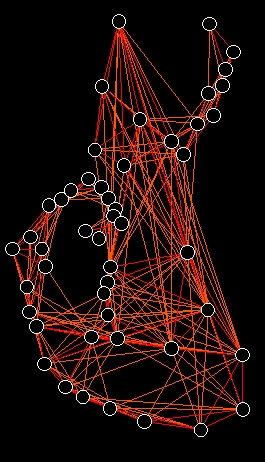Project Partners: University of Southampton (Computer Science), University of Leeds (CCG and Biosystems), University of Sussex (CCNR and SPRU).

We are already surrounded by systems that are attempting to achieve this transition: from e-government, the digital NHS and virtual universities, to peer-to-peer communities, grid computing and e-science. Traditional, centralised approaches do not scale to cope with these systems, and as yet we have no established design methodology capable of guiding this type of transition. Consequently, engineering large-scale IT systems can be a haphazard and wasteful enterprise.
In this proposal, we take inspiration from natural systems that achieve fault-tolerant, flexible and efficient functionality, despite being distributed and unsupervised.
We focus on the role of the spatial organisation of networks and the spatial processes within which they are embedded, factors that have often been neglected. We identify neural networks and geographic networks as key spatially embedded adaptive systems, and propose an interdisciplinary research programme to explicate factors responsible for stability, flexibility, etc., in each case, and mobilise these insights as novel design rules for complex IT infrastructure and software.
People
Michael Batty
View Mike's profile
Send Mike an email
 Close
Close

